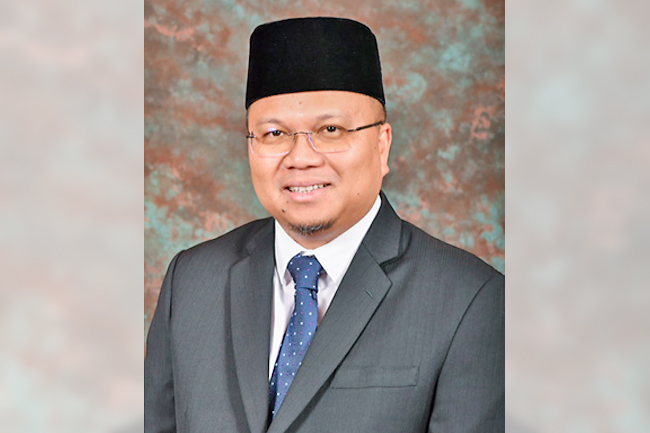James Kon
Dementia is currently the seventh leading cause of death worldwide and according to findings from the Lancet’s Global Burden of Disease study in 2019, Brunei Darussalam has 1,574 cases of dementia with the figure expected to rise by 365 per cent to 7,317 by 2050.
The worrying figures were shared by Minister of Health Dato Seri Setia Dr Haji Mohd Isham bin Haji Jaafar in his message in conjunction with World Alzheimer’s Month celebrated every September.
Dato Seri Setia Dr Haji Mohd Isham explained that dementia is a kind of disease affecting the cognitive function of the brain impacting memory, thinking, behaviour and emotion. Dementia is also the main cause of differently-abled and dependency among the elderly.
According to the World Health Organization (WHO), new cases of dementia identified among the elderly occur every three seconds throughout the world and an estimated 55 million people worldwide are living with dementia. With the increasing rate of elderly population in each country, the estimation is expected to increase to 78 million by 2030 and 139 million by 2050.

He added, “There are different types of dementia whereby Alzheimer’s disease is the most common contributing to 60 to 70 per cent of dementia cases. Due to the high rate of non-communicable diseases (NCDs) in Brunei Darussalam, vascular dementia is also commonly found among the elderly.”
Dementia, he reiterated “is not a result of the normal ageing process, it is a disease that affects memory, thinking, behaviour and the individual’s emotions. The symptoms of dementia include loss of memory and thought, difficulties finding the right words to say or understand what was being said, difficulties in performing daily tasks or changes in personality and emotion. People affected will not be able to take care of themselves and will need assistance in all aspects of their life.”
Dementia, he mentioned, “has physical, psychological, social and economic impacts not only to individuals with dementia but also the carer, family as well as the community as a whole. There is often a lack of awareness and understanding of dementia, resulting in stigma and barriers to diagnosis and care.”
He added, “The Covid-19 pandemic has a significant impact on all walks of life, especially people with dementia who experience a higher risk of obtaining treatment at hospital, experience more severe illness and the risk of dying from COVID-19 as compared to patients who do not have dementia.
“The Covid-19 outbreak is also associated with long-term cognitive impairment among the elderly. This has further worsened by the restriction and isolation from people which is among the risks of suffering from dementia.”
He shared that every month of September, World Alzheimer’s Month is remembered and Brunei Darussalam is no exception. The theme for this year’s World Alzheimer’s Month is similar with last year which is ‘Know Dementia, Know Alzheimer’s’. The theme aimed to raise public knowledge especially on warning signs of dementia and the importance of accurate diagnosis because knowing the warning signs can empower the public to be more prepared to manage or care for someone with dementia.
In the meantime, he revealed that the MoH in collaboration with Demensia Brunei, a non-governmental organisation (NGO) has planned activities to raise public awareness on dementia.
In Brunei Darussalam, he said, “There is a high rate of NCDs especially high blood pressure, diabetes, heart disease, stroke and kidney failure – risk factors for dementia. For those with uncontrolled NCDs, the risk of getting dementia is higher compared to those who can control it well.”
Among the efforts in addressing dementia, he said, are understanding the symptoms and the risk factor of dementia. Those with NCDs are advised to comply and attend scheduled appointments for a doctor’s examination. They also can obtain appointments for health screening or examination at health centres in accordance to their catchments.”
The public is also advised to increase daily physical activities for at least 30 minutes for five days a week and perform stimulating mental health activities as well as improve social interaction with family members and friends. This can help reduce the risk of getting dementia and also delay the progression of dementia. Involve oneself, family members and friends to learn about dementia by getting information and advice from trusted sources, disseminate about dementia disease and provide support for those suffering from dementia or family members or acquaintances who have dementia.
In addressing the issue of dementia, the minister highlighted that the MoH has prepared and will continue to assess the need for a health system and infrastructure that is easily accessible and fair as well as of high quality to all residents of Brunei Darussalam in ensuring that all will benefit from the services.
The MoH is also working closely with various government agencies like the Ministry of Culture, Youth and Sports, Senior Citizen Activity Centres and NGOs like Demensia Brunei to raise awareness on dementia and implement intervention as well as activities associated with dementia. The MoH will make sure that healthcare workers and volunteers will be adequately trained until they can provide advice and care services for individuals with dementia and their family members and guardians.”
The minister reiterated the MoH’s commitment in achieving Brunei Vision 2035, especially in achieving high quality of life for all levels of citizens and residents in Brunei Darussalam, adding that together we can make a difference to address and publicise dementia.





